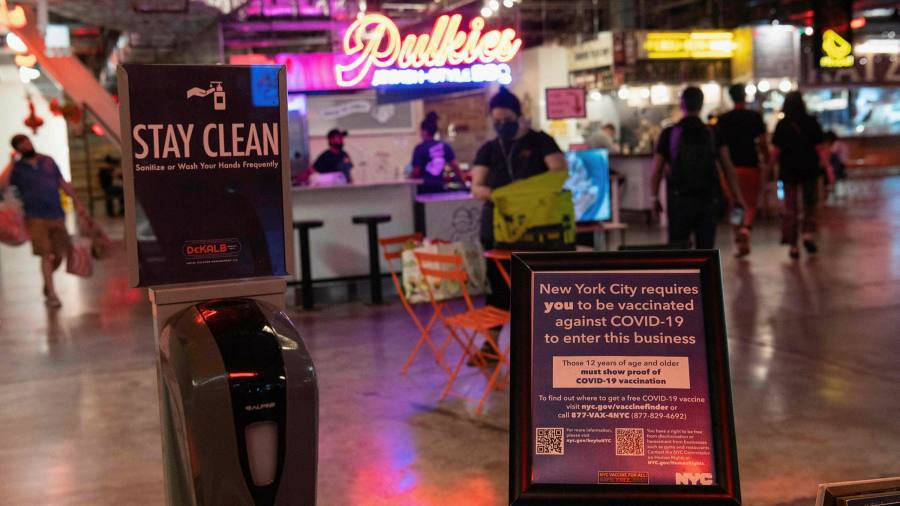In Japan, concerns are growing that indispensable foreign workers will turn away from domestic industries in the near future as coronavirus pandemic restrictions deter newcomers.
Although Japan is generally reluctant to accept immigrants, Japan has a technical internship training program for foreign workers with the official purpose of assisting developing countries.
Care Support in Saitama City, which runs the home and other care facilities, started hiring young people from Vietnam and other countries in 2019.
She currently has 13 foreign employees in the internship program or with the residence status “separate skilled worker”.
But new foreign workers who want to hire Care Support will not be able to enter Japan due to the pandemic.
“All care facilities are faced with chronic labor shortages,” a company employee told Nikkei Asia. “We are eager to hire [foreign workers] as early as possible.”
An Indonesian immigrant works in a copper pipe factory in Oizumi, 100 km north of Tokyo © Kazuhiro Nogi / AFP via Getty Images
About 180,000 young people entered the labor market after graduating from high school in Japan last year, 70 percent fewer than the 600,000 in 1990.
“Foreign workers have had the [this] overthrow, ”said Shohei Sugita, a lawyer familiar with foreign employment issues.
The government has expanded its acceptance of unskilled foreign workers while maintaining an attitude towards immigrants who come to Japan expecting permanent residence.
The internship training program was introduced in 1993 to take in unskilled workers from Asian countries on the grounds that skills acquired in Japan could help them develop their home countries.
According to the Ministry of Health, Labor and Social Welfare, there were an estimated 600,000 foreign workers in Japan in 1993, including illegal workers, which nearly tripled to 1.72 million by 2020.
Around 378,000 foreigners were working in Japan as part of the internship training program at the end of 2020, about twice as many as five years earlier, despite the pandemic halting any further surge.

